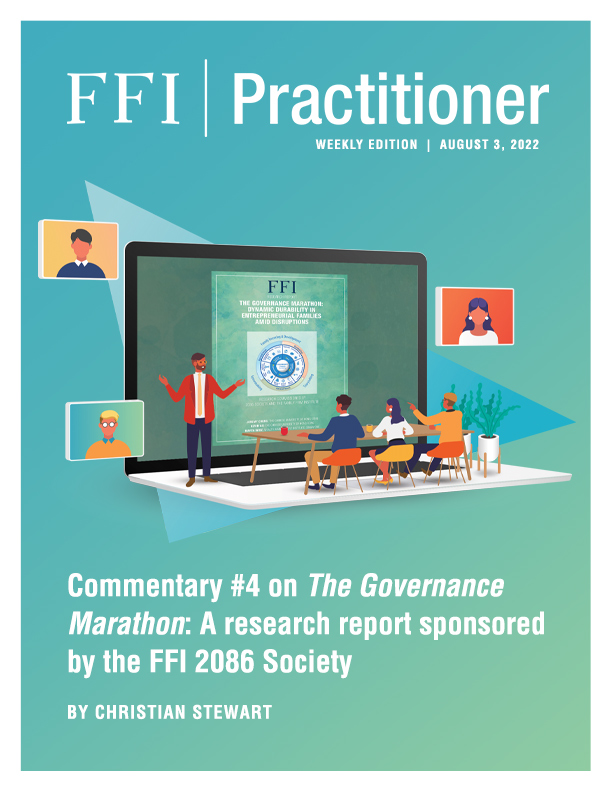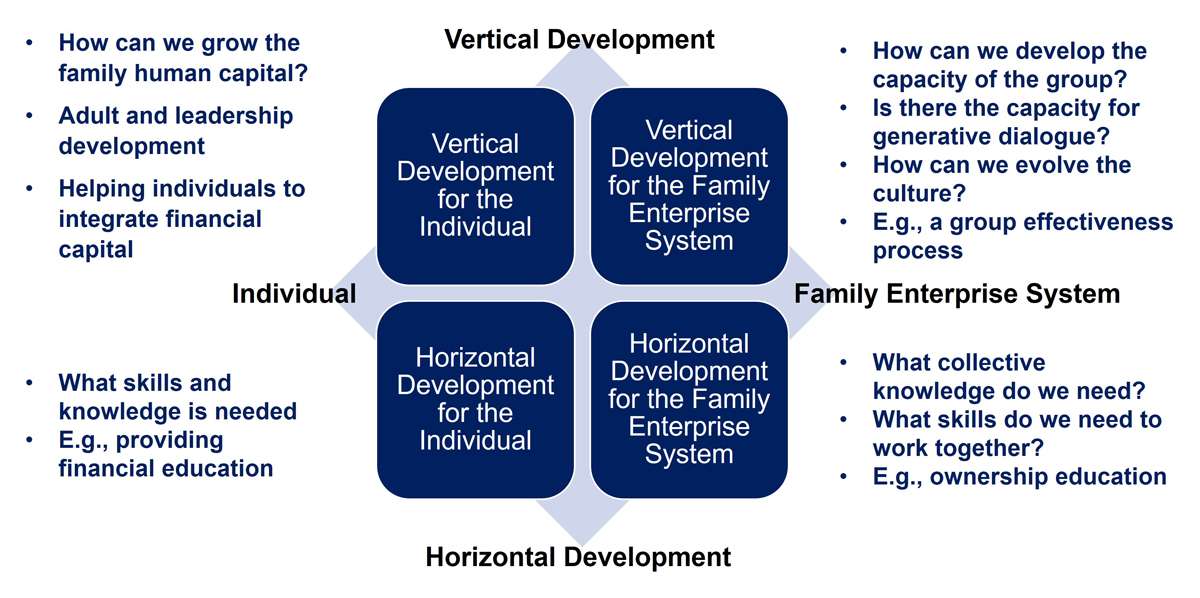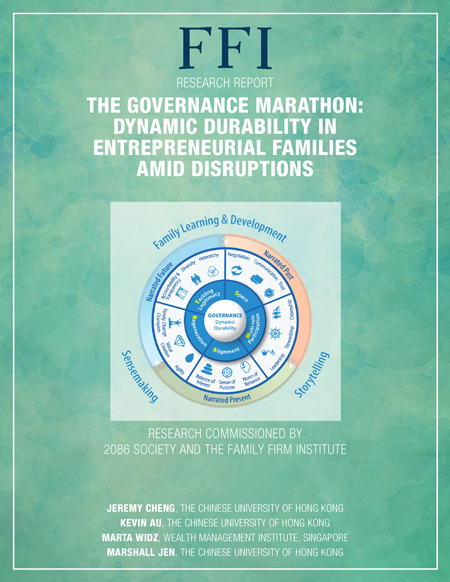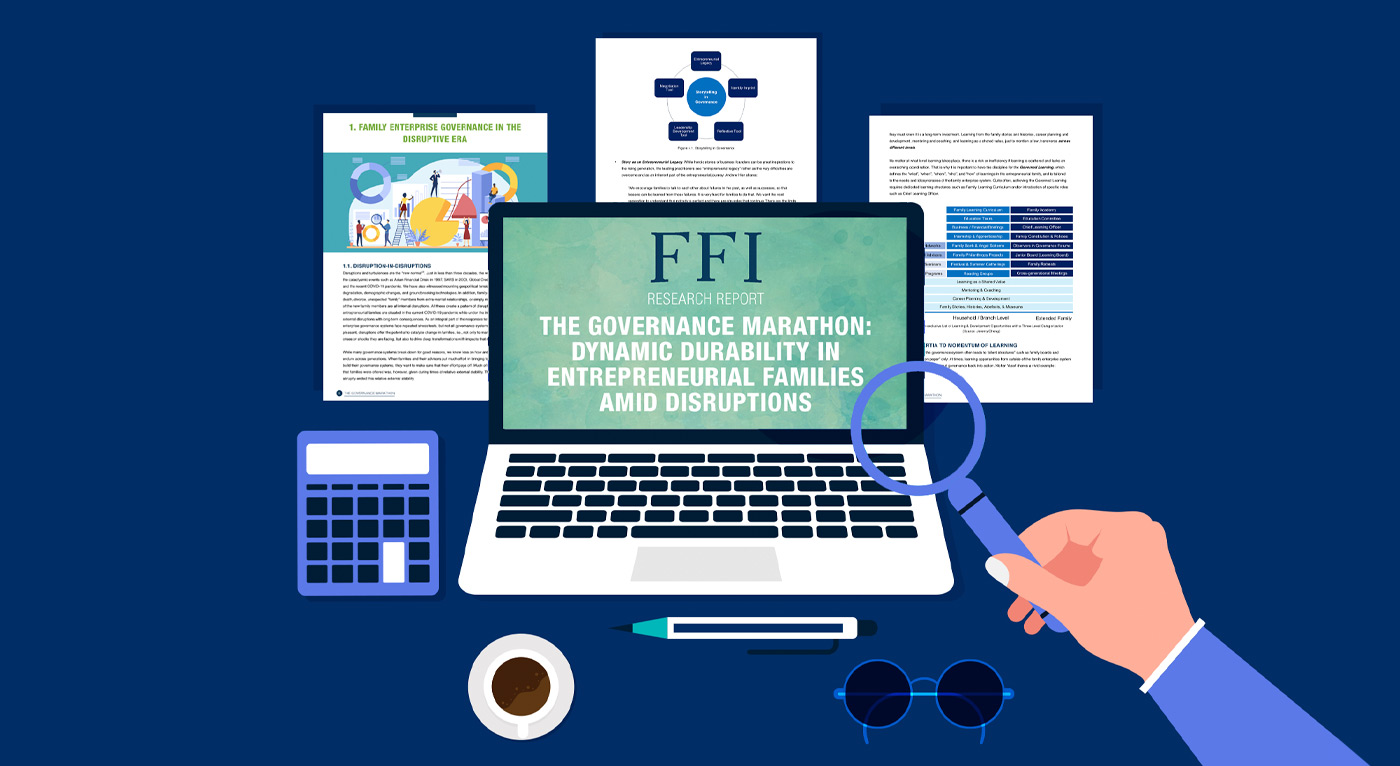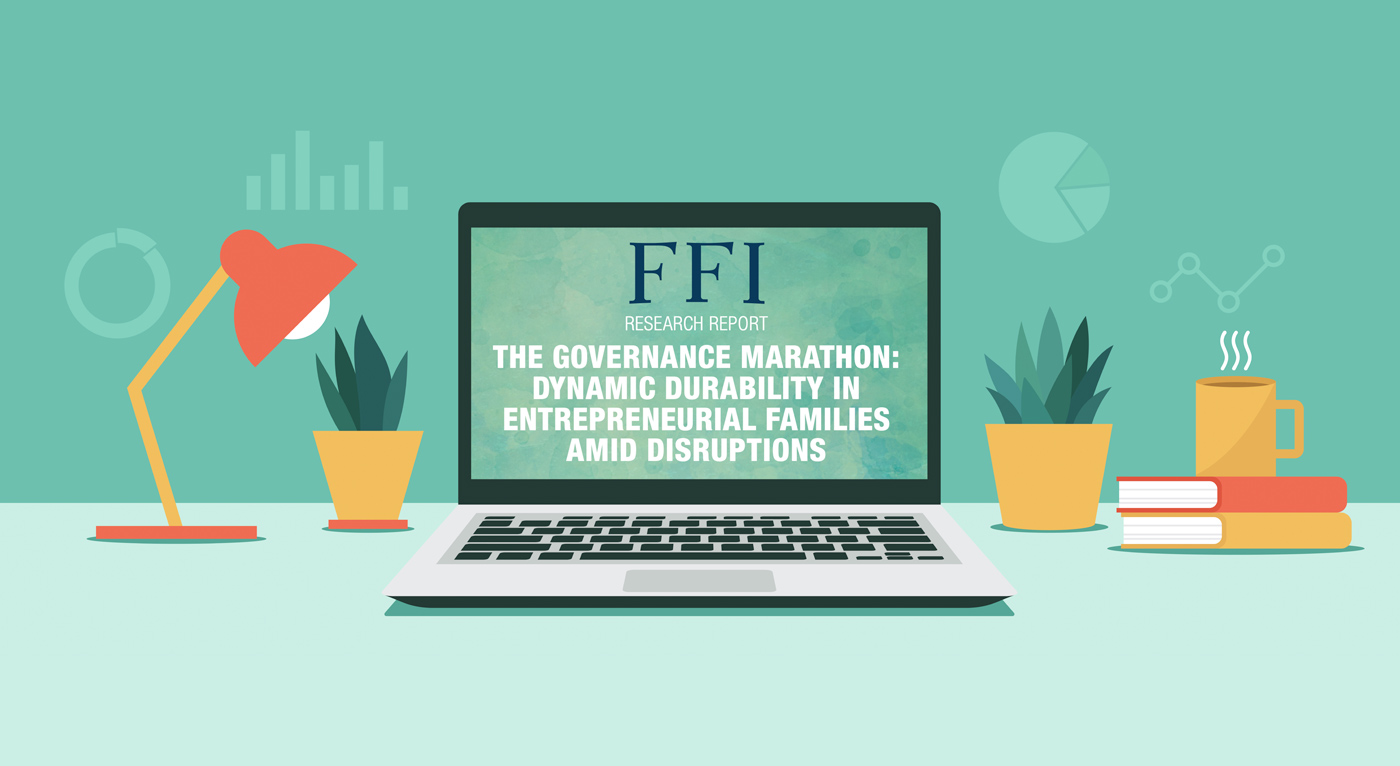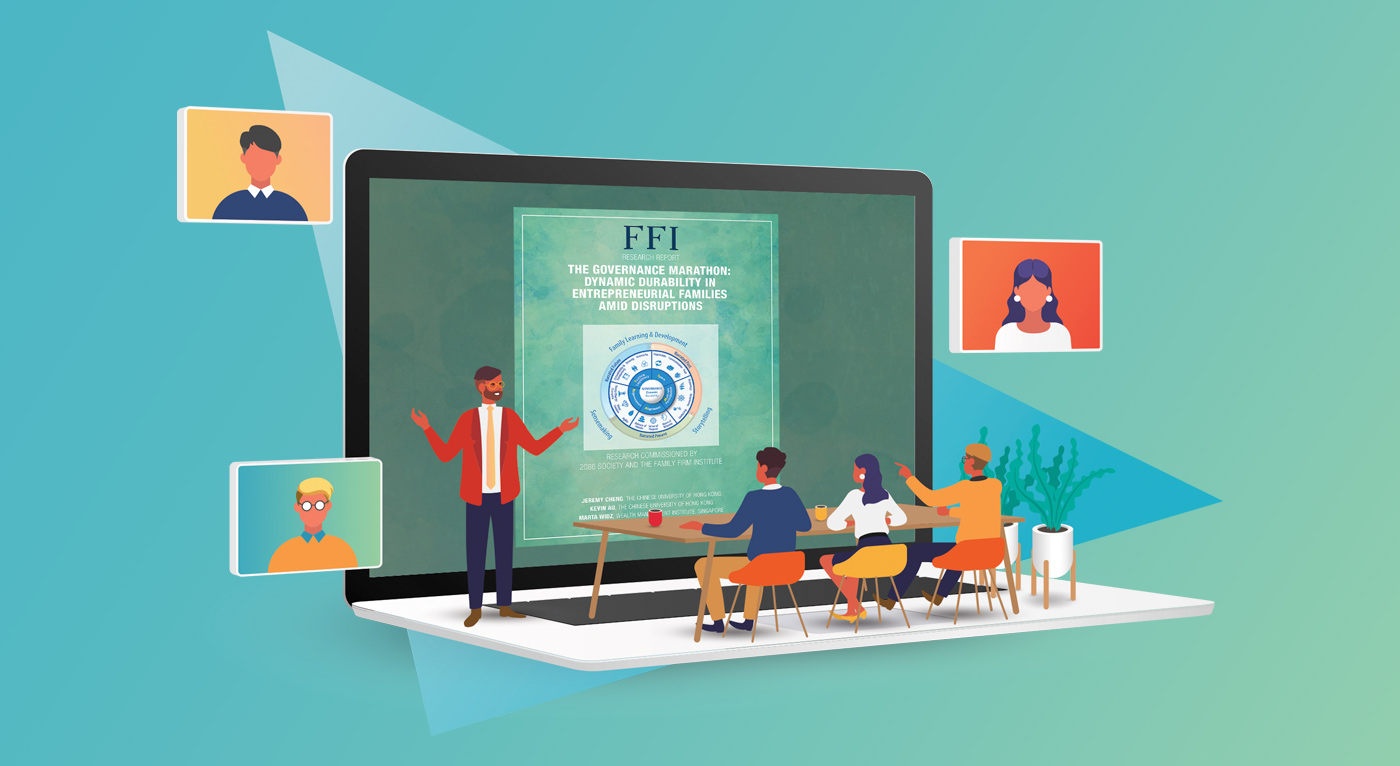
Successful entrepreneurial families view governance as learning and development, and this mindset nurtures “dynamic durability.” (See the FFI 2086 Society research report, The Governance Marathon: Dynamic durability in entrepreneurial families amid disruptions2 (the “report”). My article explores this theme and the role of the family enterprise advisor as “learning system enhancer.”
Learning System Enhancers
The report examines the topic of governance durability by introducing the G-SMART model of dynamic durability. G-SMART includes three processes that nurture dynamic durability: sensemaking, storytelling, and family learning and development (“FLD”).
The authors of the report assert that FLD and governance are inseparable in family enterprise systems. When a family develops and launches its own family governance system, it requires family members to learn how to collaborate, how to serve on committees, how to play different roles, and how to grow together.
Family enterprise advisors support their clients’ learning systems when they effectively facilitate discussions about the family’s needs and learning goals as well as discussions about the best fit between the governance system and the learning system. These discussions require engaging different family members and support effective family learning by applying relevant governance structures. Family enterprise advisors can also add value for their clients by helping to co-create a family learning curriculum.
The Family Learning and Development (FLD) Matrix
It is helpful to make a distinction between horizontal development—putting more content into the container—and vertical development—making the original container bigger. Vertical development involves the growth and development of individuals. In a family context, it can also improve effectiveness, cohesion, and maturation of the group. Advisors need to distinguish between working with the individual (both together and apart from the system) and working with the system a distinction that gives rise to the following FLD Matrix referred to in section 5.4 of the report:
- Horizontal development for the family enterprise system: includes working with families to develop the role of owners and board member as the participants in the family enterprise system collectively learn new roles. An example would be coaching a member of the current generation to explain to a next generation family member the purpose of the family enterprise governance system and family’s the values, mission, and vision.
- Vertical development for the family enterprise system: includes facilitating family meetings, improving group effectiveness, introducing new frameworks or skills for group decision making and conflict resolution, teaching family members to collaborate together, and supporting board effectiveness.
- Horizontal development for the individual: includes teaching individual family members about the trustee-beneficiary relationship or the terms of the family buy-sell agreement, as well as providing family members with financial education, would fall into this category.
- Vertical development for the individual: This quadrant may not receive as much attention from family enterprise advisors as do the other three. However, in terms of creating dynamic durability in a governance system, it is an important quadrant for initiating individual development work.3
Advisors who may not possess the skills to work in this quadrant should consider collaborating with one or more individuals with a behavioral science background. This kind of partnership need not be limited to the domain of individual development; it could also extend to development work for the system, such as jointly facilitated family or ownership meetings or work with boards. Advisors can also ask the family how they would incorporate support for individual vertical development into its family governance structures and processes.
Sidebar
Kevin Au, The Chinese University of Hong Kong
Marta Widz, Wealth Management Institute, Singapore
Marshall Jen, The Chinese University of Hong Kong
This research report, sponsored by the FFI 2086 Society, addresses how entrepreneurial families nurture a durable governance system in the ongoing waves of external and internal disruptions.
A Learning Organization
In The Fifth Discipline,4 Peter Senge describes a learning organization as one “…where the people continually expand their capacity to create the results they truly desire, when new and expensive patterns of thinking are nurtured, where collective aspiration is set free, and where people are continually learning how to learn together.” According to Senge, there are five disciplines of a learning organization: personal mastery, mental models, building shared vision, team learning, and systems thinking. Senge’s view of learning organizations can be expanded to the family.
Taking some examples suggested by Barton Parrot,5 families can adopt practices such as providing honest feedback, looking for low-risk learning, holding after-action reviews, identifying and questioning assumptions, carving out time for reflection, having family members become the teacher in order to learn, and always supporting family members to individuate.
In helping an enterprising family to develop a dynamically durable governance system, advisors can facilitate the family’s integration of learning organization principles and practices into their governance system and into their family, ownership, and board meetings.

In ensuring that all four dimensions of the FLD Matrix are considered, advisors can support the developmental needs of individual family members throughout their lives—including in their lives away from the family enterprise system. In their capacity as learning system enhancers, advisors can ensure the ongoing effectiveness of their clients’ governance institutions.
The author acknowledges Dennis Jaffe and Jeremy Cheng for their help with this article.
References
1Hughes, J.E. (2004). Family Wealth—Keeping It in the Family: How family members and their advisers preserve human, intellectual, and financial assets for generations. New York: Bloomberg Press.
2Cheng, J., Au, K., Widz, M., & Jen, M. (2021). The Governance Marathon: Dynamic durability in entrepreneurial families amid disruptions. Research report commissioned by 2086 Society and the Family Firm Institute. https://digital.ffi.org/pdf/ffi_the_governance_marathon_report.pdf
3In his work, Dennis Jaffe has discussed generative families, whose second-generation members realized they needed to focus on growing a great family, and that this was distinct from growing a great business. See Jaffe, D.T. (2020). Borrowed from Your Grandchildren: The evolution of 100-year family enterprises. Hoboken, NJ: Wiley.
4Senge, P.M. (2006). The Fifth Discipline: The art & practice of the learning organization. New York: Doubleday. p. 3.
5Parrot, B. (2017). The Role of Lifelong Learning in Family Leadership and Managing Family Wealth. Investments & Wealth Monitor. https://investmentsandwealth.org/getattachment/8945640e-a05c-448e-bffe-19e04723fe02/IWM17JulAug-RoleOfLifelongLearning.pdf

